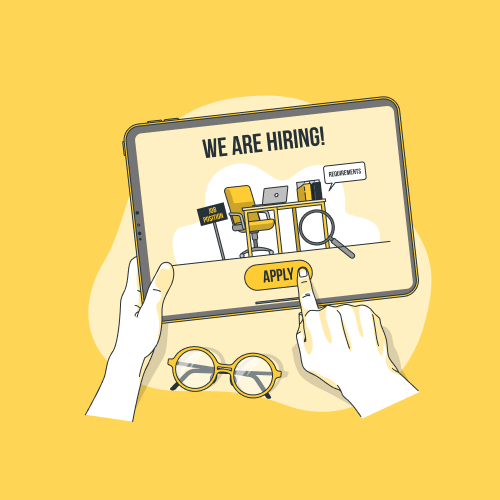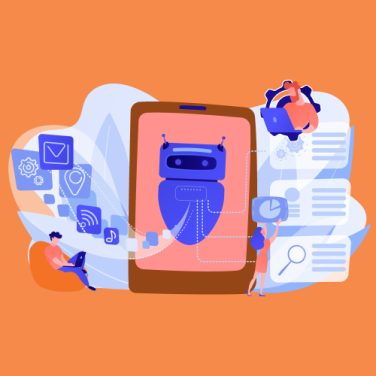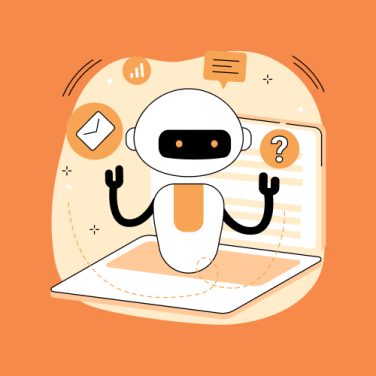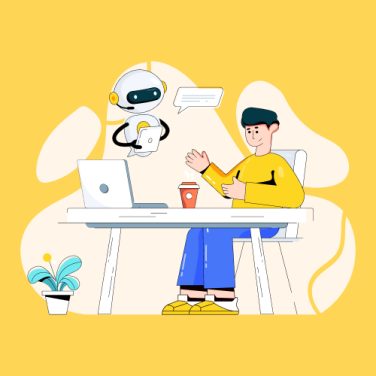AI and recruitment jobs are at the forefront of a major transformation.
Automation powered by machine learning and Natural Language Processing accelerates every hiring stage. From screening resumes to scheduling interviews, AI technologies streamline repetitive tasks. Efficiency gains reduce time-to-fill vacancies. Objective algorithms minimise unconscious bias. This shift delivers consistent, data-driven decisions.
In the AI and recruitment process, human recruiters can move from routine administration to strategic workforce planning. AI systems analyse historical hiring data to identify talent gaps and forecast hiring needs. This information enables recruitment leaders to make proactive choices. Manual tasks like resume parsing and candidate outreach become automated. Staff focus on relationship-building and employer branding.
Candidates benefit from personalised, on-demand interactions. AI chatbots provide 24/7 support, answering questions and updating applicants on their status. Automated assessments deliver immediate feedback. This level of transparency enhances user satisfaction. Positive candidate experiences strengthen employer reputation and drive higher acceptance rates, illustrating the impact of ai and recruiting.
- Continuous sourcing with AI-driven tools;
- Automated scheduling and follow-ups at scale;
- Data-backed insights for fair candidate evaluation;
- Around-the-clock candidate engagement through chatbots.
The AI-enabled hiring market: Overview
This overview of AI and recruitment jobs reveals a rapidly expanding market.
Global spending on AI in talent acquisition exceeded $1.5 billion in 2024. Growth is driven by widespread talent shortages, the need to optimise hiring workflows, and improved candidate experiences.
By 2028, analysts project a compound annual growth rate of nearly 20% as companies adopt ai and recruitment process innovations.
Main drivers include:
- Pressure to fill roles faster with quality candidates;
- Demand for objective decision-making to reduce bias;
- Scalable solution to handle high application volumes.
The AI and recruiting landscape continues to evolve. Organisations leveraging predictive analytics and conversational AI will gain a competitive edge. For a deeper dive, explore the ultimate guide to AI in recruitment.
AI Recruiter and Sourcer: A new job title
In AI and recruitment jobs, the AI Recruiter and Sourcer role combines sourcing expertise with intelligent automation.
Professionals in this position leverage AI tools to identify and engage top candidates efficiently. They configure data-driven search parameters, refine algorithms, and oversee candidate pipelines. The result is a scalable sourcing process that adapts to fluctuating hiring needs.
Day-to-day tasks include:
- Automated candidate sourcing across job boards and social platforms;
- Resume screening using keyword and semantic analysis;
- AI-powered candidate outreach with personalised messaging;
- Monitoring talent pipeline health via analytics dashboards.
This role adds value by accelerating talent pipelines and improving quality of hire. Adoption of MiHCM Data & AI analytics dashboards equips sourcers with real-time metrics on candidate flow and engagement. Teams achieve faster, bias-reduced candidate screening and make strategic decisions based on actionable analytics.
Chatbot Conversational Designer: Bridging candidates and AI
The Chatbot Conversational Designer crafts candidate-facing dialogue flows for recruitment chatbots. This specialist ensures brand-consistent, inclusive communication throughout the hiring journey. They define intents, design response templates, and optimise conversation paths based on user feedback and engagement metrics.
Key responsibilities include:
- Mapping candidate Q&A scenarios and intent hierarchies;
- Writing clear, accessible dialogue that reinforces employer brand;
- Integrating fallback responses for ambiguous queries;
- Analysing response rates and candidate satisfaction scores.
Metrics such as response rate, resolution time, and candidate satisfaction guide continuous improvement. Leveraging MiA’s natural language understanding and SmartAssist workflows, designers deliver consistent, high-quality interactions. This role amplifies candidate engagement and supports a seamless ai and recruiting experience.
Recruitment Data Analyst: Turning data into talent strategies
Recruitment Data Analysts translate recruitment funnel metrics into actionable talent strategies. They build predictive models to forecast candidate success and optimise resource allocation. Analysts create dashboards and KPI trackers that align with organisational objectives, enabling data-driven HR decisions.
| Đơn vị đo lường | Mục đích | Tool |
|---|---|---|
| Application Completion Rate | Identify drop-off points | MiHCM Analytics |
| Time-to-Fill | Measure efficiency | MiHCM Dữ liệu & Trí tuệ nhân tạo |
| Quality of Hire Score | Gauge candidate performance | Custom Dashboards |
AI Governance and Ethics Officer: Safeguarding fair hiring
The AI Governance and Ethics Officer establishes policies to ensure responsible use of AI in hiring. This role monitors model fairness, compliance with regulations, and ethical standards across all recruitment technologies.
Core duties include:
- Developing ethical AI guidelines and best practices;
- Conducting regular bias audits and monitoring performance;
- Ensuring adherence to GDPR, EEOC, and other standards;
- Coordinating with legal teams on data privacy and retention policies.
This human-in-the-loop oversight balances AI objectivity with strategic governance, preserving fairness throughout the ai and recruitment process.
Training and certification paths for AI recruitment roles
HR professionals seeking ai and recruiting roles can pursue targeted certifications and courses. Structured learning builds expertise in analytics, ethics, and AI application within recruitment.
Recommended credentials and pathways:
- People Analytics Certificate (Wharton School) for HR analytics;
- Oxford University Certificate in Responsible AI for ethics;
- Coursera’s AI For Everyone and LinkedIn Learning’s AI in HR tracks;
- Hands-on labs in the MiHCM sandbox for real-world recruitment scenarios;
- Certified Talent Acquisition Strategist (HCI) for strategic hiring practices.
Combining theoretical knowledge with MiHCM sandbox practice ensures readiness for emerging AI roles and a smooth transition into ai and recruitment jobs.
Essential technical skills for AI recruitment jobs
Technical proficiency underpins successful ai and recruiting careers. Candidates must master data manipulation, platform integration, and reporting tools to unlock AI potential in hiring.
- Data analysis: SQL querying and Python fundamentals for dataset preparation;
- Familiarity with AI platforms and APIs to deploy and test models;
- Dashboarding: Tableau or MiHCM Analytics for visualising recruitment metrics;
- Basic machine learning concepts: classification, clustering, and predictive modeling;
- Understanding RESTful APIs for integrating recruitment systems and AI services.
These skills enable professionals to configure AI-driven workflows, interpret model outputs, and deliver data-driven HR decisions that support efficient hiring.
Key soft skills: The human touch in AI-driven hiring
While AI automates tasks, soft skills differentiate top talent in ai and recruitment jobs. Human-centric capabilities ensure AI tools enhance, rather than replace, interpersonal elements of hiring.
- Empathy and candidate engagement to maintain rapport and trust;
- Critical thinking for interpreting AI outputs and model limitations;
- Collaboration between HR, data science, and legal teams for cohesive strategies;
- Clear communication with technical and non-technical stakeholders;
- Adaptability to evolving AI features and recruitment trends.
Balancing technology with empathy and judgment drives candidate satisfaction and fosters inclusive hiring practices.
Transitioning from traditional HR to AI-focused roles
HR professionals can leverage existing expertise while building AI capabilities for ai and recruitment process roles.
- Inventory transferable skills: interviewing, relationship-building, and employer branding;
- Build AI literacy through workshops, webinars, and online courses;
- Earn relevant certifications in HR analytics, AI ethics, and predictive modelling;
- Engage with AI recruitment communities and attend industry events;
- Use MiHCM sandbox to practice real-world scenarios and tool configurations.
This structured approach bridges traditional HR experience with technical proficiency, creating a clear pathway into ai and recruitment jobs.
Building your AI recruitment portfolio: Projects and experience
An impactful portfolio demonstrates hands-on expertise in AI and recruitment jobs. Showcase practical projects and measurable outcomes.
- Develop chatbot prototypes to simulate candidate conversations and track engagement metrics;
- Create interactive analytics dashboards displaying recruitment funnel health and predictive scores;
- Contribute to open-source HR AI projects to demonstrate collaboration and code quality;
- Document case studies with impact metrics, such as reduced time-to-fill or improved diversity ratios;
- Publish findings on platforms like LinkedIn to build professional visibility.
These portfolio elements highlight technical skills and strategic thinking, making candidates stand out in the AI-enabled hiring market.
Salary ranges and earning potential in AI recruitment
| Role Level | Salary Range |
|---|---|
| Entry-Level | $60K–$80K |
| Mid-Level | $80K–$110K |
| Senior/Management | $110K–$150K+ |
How to get started
Schedule a demo with MiHCM to explore our solutions can accelerate your recruitment transformation.
Leverage our implementation framework to deliver measurable efficiency gains, enhance candidate experience, and maintain ethical standards.
Top AI tools and technologies in recruitment
Leading tools power AI and recruiting workflows across sourcing, engagement, and analytics. Familiarity with these platforms boosts efficiency and decision-making.
- Screening platforms
- Chatbot frameworks
- Analytics solutions
- Scheduling automation
- Bias mitigation tools
These technologies form an integrated ecosystem, enabling seamless recruitment processes, improved efficiency, and data-driven HR decisions.
Using MiHCM Data & AI for predictive talent matching
MiHCM Data & AI uncovers hidden patterns in candidate data to enable predictive talent matching. Integration with ATS workflows automates shortlisting based on fit and performance likelihood.
- Analyse resumes to extract skills, experience, and competencies;
- Generate predictive scores to prioritise top candidates;
- Integrate scoring outputs into recruiting workflows for automated shortlisting;
- Monitor model performance and retrain with new hiring data;
- Deliver data-driven HR decisions that improve quality of hire.
Mitigating bias with AI: Best practices and ethics
Ensuring fairness in ai and recruitment process requires ongoing attention to data and models. Implementing best practices minimises bias and promotes inclusion.
- Regular bias audits and scheduled model retraining;
- Use of diverse training data and fairness metrics;
- Human-in-the-loop reviews at key decision points;
- Transparent reporting of demographic outcomes;
- Ethical AI policies enforced by governance officers.
Compliance challenges in AI-driven recruitment
Navigating regulations is critical for AI and recruiting tools. Organisations must balance innovation with legal obligations to protect candidate rights.
- GDPR: secure data subject consent and enable right to erasure;
- EEOC: adhere to non-discrimination and record-keeping guidelines;
- Implement clear disclosures of AI use and obtain candidate opt-in;
- Maintain detailed logs of AI-driven decisions for audit trails;
- Coordinate with legal teams on evolving compliance requirements.
Case studies: Successful AI implementation in recruitment
- Global retailer: reduced time-to-hire by 35% using AI-driven screening and scheduling.
- Tech firm: increased candidate diversity by 20% after deploying unbiased job descriptions and analytics.
- Financial services: optimised offer acceptance by 15% through predictive offer models and real-time negotiation tools.
Read more case studies on successful AI implementation in recruitment for detailed insights on strategy, tooling, and outcomes.
Measuring success: Recruitment metrics in the AI era
Tracking the right metrics demonstrates the impact of AI and recruitment jobs on business outcomes. Recruiters and HR leaders should monitor these key indicators:
- Time-to-fill: average days to hire compared to industry benchmarks;
- Quality-of-hire: performance ratings and retention rates of new hires;
- Candidate satisfaction: NPS and feedback survey scores;
- Cost-per-hire: recruitment spend versus AI investment ROI;
- Source effectiveness: yield rates and channel performance analysis.
Future trends: The next frontier in AI and recruitment
The AI and recruiting landscape continues to mature with emerging technologies shaping the next decade of hiring.
- Voice and video AI interviewing for dynamic, real-time candidate assessment;
- Augmented reality onboarding experiences that immerse new hires;
- Continuous learning bots facilitating internal mobility and skill development;
- Integration of wellness and sentiment analysis into hiring algorithms;
- Autonomous workforce forecasting powered by advanced machine learning models.



